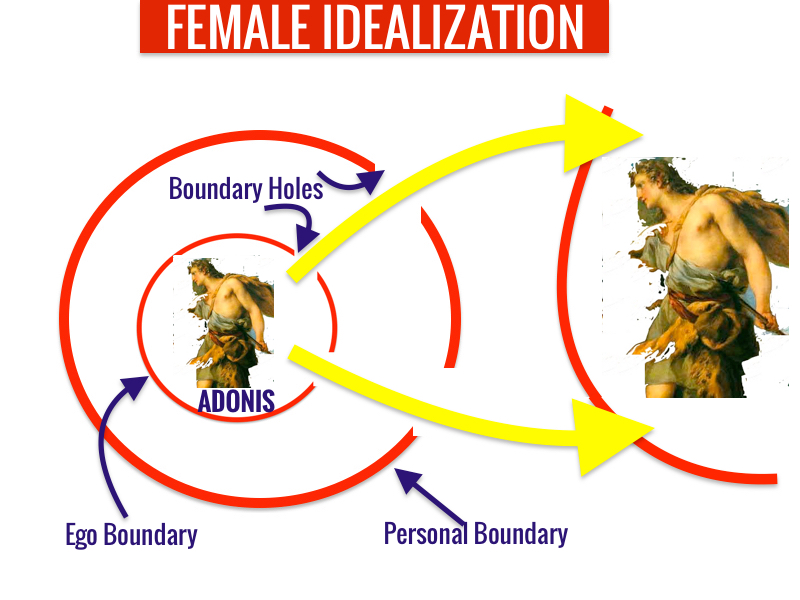This defense appears when we see another person as having more desirable qualities than he or she may actually have. We saw the basic boundary anatomy of this defense when we looked at the defense called, “Projection.” Only in this case - Idealization - we are participating in a kind of “hero worship,” which any of us can indulge in from time to time.
If light and scanty, it may come across to us as charming or humble, but if it tends to be frequent and flagrant, especially if directed at us by a romantic interest, you may have noticed in such situations that it made to feel uncomfortable to be idolized too much or too often. Now you know why. It is because the person doing it is coming from a less mature perspective, an adolescent one, and that is not a good fit for the mutual reliance which will be needed in a committed relationship with goals to achieve.
Any romantic comedy in which the advances of a character toward another are constantly glowing and admiring will be felt by us to be a comedic element. We see the main character turned off by that behavior, and while we laugh, like all comedy, there is a dark element which the comedy relieves us of, which is the thought of what it would be like to have to endure hardship or challenging goals with such a glowingly admiring person. We would essentially be on our own against the world, encumbered by a dependent.
A great example of a male character doing this is that of Jason Siegel in Forgetting Sarah Marshall. His efforts at pursuing the rich and famous actress who has broken up with him are fruitless, not only because of the lack of sexual attraction caused by his absence of mysteriousness, the lack of the Hermes or Eros Instincts in him, but by his lack of maturity and what that would mean to a committed relationship, should his ex return to him. His idealization of her is his undoing, both sexually and intellectually.


